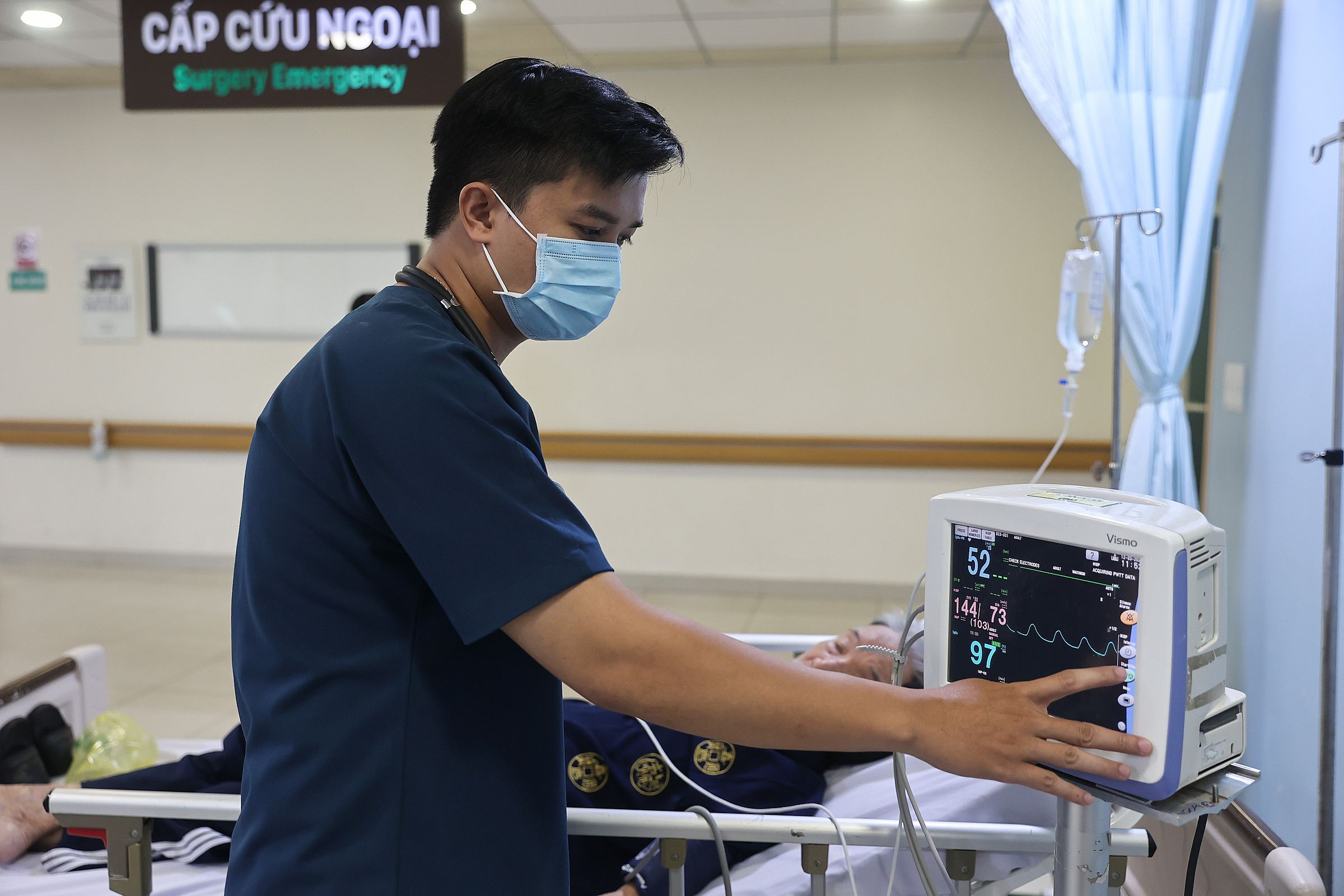This new regulation, part of the Law on Medical Examination and Treatment, mandates competency testing for all medical professionals. Doctors will be the first to undergo these assessments, starting 1/1/2027. Physician assistants, nurses, and midwives will follow on 1/1/2028. Medical technicians, clinical nutritionists, paramedics, and clinical psychologists will be tested from 1/1/2029.
The Ministry of Health has announced the 37 members of the National Medical Council, consisting of a president, three vice presidents, and 33 members. This independent body will oversee the competency assessments. Health Minister Dao Hong Lan stated that the council's establishment is essential for international integration. Many developed countries and most ASEAN nations (such as Cambodia, Laos, Singapore, and Thailand) already have national medical licensing exams, unlike Vietnam. This has created challenges in recognizing international medical qualifications and hindered Vietnamese doctors practicing abroad and vice versa.
The National Medical Council will administer the competency exams based on international standards. These exams will be the basis for issuing medical licenses, encouraging medical schools to improve teaching quality and avoid uncontrolled mass training. Only qualified individuals with professional ethics will be licensed, ensuring patient safety.
 |
Doctors at the 175 Military Hospital, Go Vap District examining patients. Photo: Quynh Tran |
Doctors at the 175 Military Hospital, Go Vap District examining patients. Photo: Quynh Tran
Professor Nguyen Viet Tien, Standing Vice President of the National Medical Council, explained that the exams will be centralized and digitally administered for fairness and accuracy. Questions will be randomized for each candidate to prevent cheating. In addition to specialized knowledge, the exams will also assess management skills, emergency response, and professional ethics.
"Through these exams, the council will evaluate the quality of medical training. If many students from a particular school fail, the council will assess that school's training quality and make recommendations for improvement," Professor Tien said, adding that the exam results will be the basis for provincial health departments to issue medical licenses. Those who fail will not be licensed or will have to take additional exams.
Professor Tran Diep Tuan, President of the University of Medicine and Pharmacy in Ho Chi Minh City and a member of the National Medical Council, noted that there are only 1.5 years left to prepare for the first exam. The council must develop assessment tools, a question bank, examination procedures, software to manage the question bank, and software to manage the exam administration. This is to ensure fairness, transparency, and international integration.
By the end of 2024, Vietnam had 214 medical training institutions, including 66 universities. Approximately 12,000 doctors graduated in 2024. Currently, there are 34 medical doctor training institutions, 18 dental training institutions, 13 traditional medicine training institutions, and 10 preventive medicine training institutions. In recent years, many private universities have started offering medical training programs.
Le Nga












